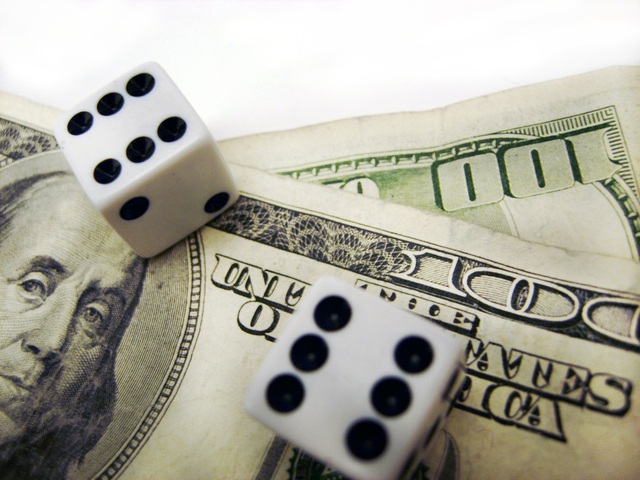
Author Michael Lewis is making headlines and selling his book “Flash Boys” with his claim that the stock market is “rigged.” But what does he mean by “rigged,” and are you – the Mom & Pop, or retail investor — really getting hurt?
I’ve been getting this question every time the story hits 60 Minutes, CNBC, CNN, The New York Times, you name it. So it’s time to set the record straight.
In a funny way, it’s tempting for most average investors to think that the stock market is rigged. If the stock market were indeed controlled by a cabal of Wall Street insiders, then you could attribute your losses to these devious schemers and justify your lack of participation in the recent rally with the cry, “Cash is better than playing with cheaters!”
But, this one-size-fits-all explanation doesn’t really hold up under scrutiny. Lewis is pointing to high frequency traders (the so-called “flash boys”) as the primary culprits in rigging the market. His claim that high frequency traders can “rig” the market stems from the fact that these traders can get their order to market before most other investors. In getting to the trading floor fastest, these investors can “cheat” you around a penny of a share.
Now, if that were true on a $25 stock, that penny we’re talking about is about 0.04% of the stock’s value. Given that long-term equity market returns have historically been between 8% and 12%, paying the high frequency guys 0.04% isn’t going to stop me from investing in the equity markets. It would be like refusing to pay a toll of $2 on the way to collect your lotto winnings of $5,000.
That said, I am not even sure that Mr. Lewis conclusively proves these traders are stealing from you, the retail investor, who in all likelihood uses neither superfast computers, fiber-optic networks, algorithmic trading strategies nor pays thousands of dollars a month for server “Rackspace” next to (or even at) the exchanges to enable the sort of advanced data reception recorded in milliseconds.
For one, high frequency traders make up 60% of the volume of American stock exchanges. If high frequency traders are more than half the trades, it means that these traders are often trading with each other! Since no real value is created by high frequency trading, it means that when two high frequency firms trade against each other, there is always a winner and a loser and he who has the better code (or closer server, etc.) wins.
Secondly, many – if not most – high frequency traders lose money, according to my conversations with purveyors of such trading software. Again, if it’s a zero sum game and most high frequency traders are losing money, then that means that either few such firms are gathering all the profits and/or you as an individual investor may actually be profiting by the existence (or in spite of) of high frequency trading.
Finally, more trading tends to lead to more liquidity and better “price discovery.” Back in the day, before the Internet, social media, etc., information moved slowly, which means it took time for the latest information to be priced into stocks. With high frequency, earnings report information is reflected in fractions of milliseconds. That means that the prices of equities are more efficiently reflecting all information available, helping individuals get fairer prices for the stocks they buy. More trading also leads to a tighter bid/ask spread. That means that the transaction costs associated with buying and selling stock is narrower, reducing the cost associated with trading. That’s good news for everyone.
In the past, there have been instances where milliseconds might matter in terms of receiving market moving data. And, it’s notable that both The University of Michigan and Business Wire (owned by Warren Buffett) have stopped selling such data in advance to the high frequency community.
We believe that no market participant should have an advantage in investing simply by virtue of having faster data connections to the markets. But we don’t believe that high frequency traders are rigging the direction of the markets, and we certainly don’t believe that high frequency trading is a reason for most individual investors to stay away from the stock market. While milliseconds might make the difference for someone trying to “time” the market, at the end of the day, fundamentals can still be more important in investing.


